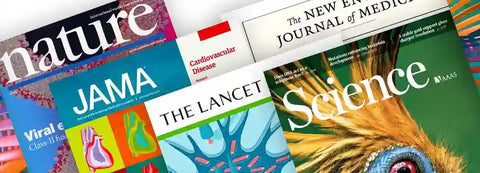Creative Academic and Scientific Writing for Modern Readers
Carl Jung claimed that ‘the creative mind plays with the objects it loves,’ a thought that seems highly applicable to the intellectual work of modern academics and scientists. Many scholars may not immediately connect the ideas of creativity and play to their research and writing, but there is a current trend to make scholarly writing more creative and engaging, more accessible to general readers as well as specialists and more like fiction in telling a story – the story of sophisticated research, its procedures and its results. Such a trend might be seen as an opportunity for scholarly authors to move beyond the conventions of their fields and the limits of their normal perspectives, to develop new ideas and innovative methods, and ultimately to share and advance knowledge in unusual, unexpected and illuminating ways.
Perhaps the easiest way to begin fostering a more creative style of writing and research is to let your ideas flow. When you formulate or find an idea that is new to you, jot it down before it flees from memory, and do this even (maybe especially) if the idea seems particularly odd, somewhat weird or even downright bizarre. Then keep that idea in your thoughts as you pursue your research, writing down any new developments as they occur. You may never use many of these ideas, but occasionally one will pay off and find its place in your research by helping you formulate unique questions and answer them in groundbreaking ways. New ideas that undermine established theories and concepts may not be welcomed by all scholars, but as a well-informed expert in your field who is familiar with its standards and conventions, you are unlikely to go so far out on an intellectual limb that you find it breaking beneath you. Bending the branch, on the other hand, can be a very positive thing.
Another approach for enhancing your creativity is to seek out new ideas and apply them to your research and writing. Ideas can be found anywhere and some of the most intriguing and inspiring are discovered in the least likely places. Popular magazines can provide kernels of thought as interesting as those in scholarly journals, and social media as well as academic blogs and web sites can take you on intellectual adventures you had not imagined. Ideas new in your field might be well established in other scholarly fields, so reading beyond your own area of expertise can be a rich source of new concepts. Taking an idea from one discipline and applying it in another can allow you to approach your work from an entirely new perspective, and you may even expand your horizons far enough to make your research truly interdisciplinary.
Whether you are reading in your own subject area or exploring far afield, always be alert to mismatches, anomalies and paradoxes even if they are accepted within a discipline. Ask yourself why they exist. Should they be accepted? What phenomenon or problem do they highlight? Consider how you might delve more deeply into the matter or perhaps view any similar gaps in your own research area under a new and more revealing light. Fascinating ideas and approaches can result from such thinking, ultimately taking your work in directions that may well surprise and delight you.
When it comes time to write up your research, try to shape the information you plan to communicate as a narrative. This does not mean that you should share the details of every stage of your work from the first inkling in your mind to the last paragraph of your article. What you should do is aim to tell a story about the procedures and results of your research, focussing on the aspects of your work that you believe your anticipated audience will find most compelling. Starting an article with an engaging anecdote or exciting event, perhaps some extraordinary or unusual occurrence that was part of your research experience or process, can be an excellent strategy for catching the attention of readers and inspiring them to read on in order to discover where your story will take them.
Why Our Editing and Proofreading Services?
At Proof-Reading-Service.com we offer the highest quality journal article editing, dissertation proofreading and online proofreading services via our large and extremely dedicated team of academic and scientific professionals. All of our proofreaders are native speakers of English who have earned their own postgraduate degrees, and their areas of specialisation cover such a wide range of disciplines that we are able to help our international clientele with research editing to improve and perfect all kinds of academic manuscripts for successful publication. Many of the carefully trained members of our manuscript editing and proofreading team work predominantly on articles intended for publication in scholarly journals, applying painstaking journal editing standards to ensure that the references and formatting used in each paper are in conformity with the journal’s instructions for authors and to correct any grammar, spelling, punctuation or simple typing errors. In this way, we enable our clients to report their research in the clear and accurate ways required to impress acquisitions proofreaders and achieve publication.
Our scientific proofreading services for the authors of a wide variety of scientific journal papers are especially popular, but we also offer manuscript proofreading services and have the experience and expertise to proofread and edit manuscripts in all scholarly disciplines, as well as beyond them. We have team members who specialise in medical proofreading services, and some of our experts dedicate their time exclusively to dissertation proofreading and manuscript proofreading, offering academics the opportunity to improve their use of formatting and language through the most exacting PhD thesis editing and journal article proofreading practices. Whether you are preparing a conference paper for presentation, polishing a progress report to share with colleagues, or facing the daunting task of editing and perfecting any kind of scholarly document for publication, a qualified member of our professional team can provide invaluable assistance and give you greater confidence in your written work.
If you are in the process of preparing an article for an academic or scientific journal, or planning one for the near future, you may well be interested in a new book, Guide to Journal Publication, which is available on our Tips and Advice on Publishing Research in Journals website.








